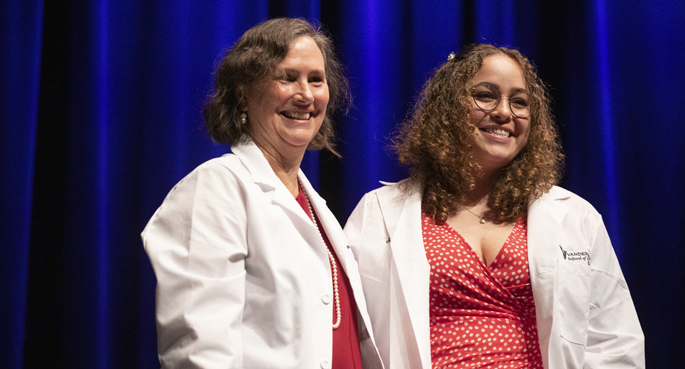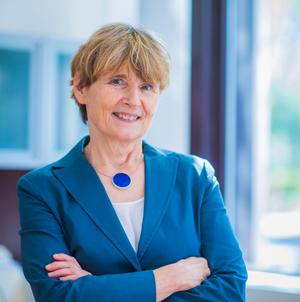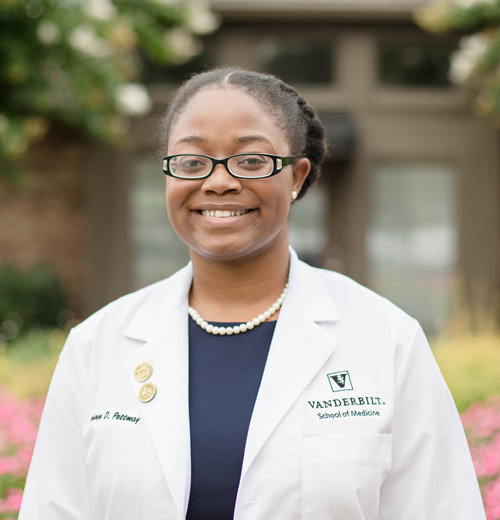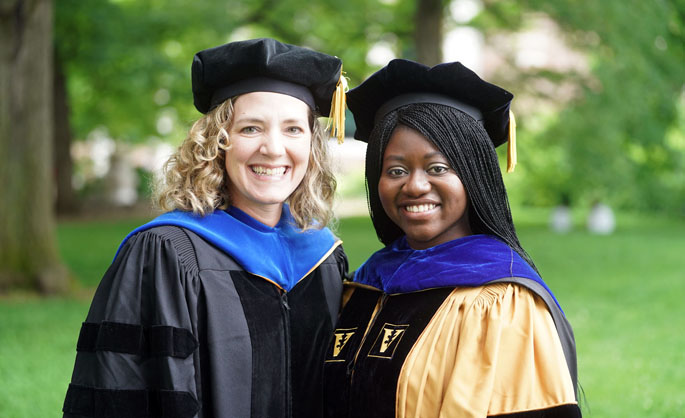
by Leigh MacMillan
Hubaida Fuseini, PhD, didn’t expect to like Vanderbilt University when she came for a graduate school interview five years ago. But the collaborative, supportive environment and a program focused on increasing the number of biomedical science PhDs awarded to graduate students who are underrepresented in science won her over.
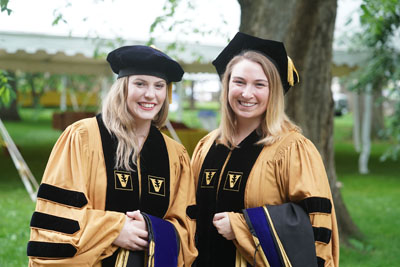
The Initiative for Maximizing Student Diversity (IMSD) is funded by the National Institutes of Health (NIH) and has been in existence at Vanderbilt since 2000.
Twelve IMSD graduates — the largest group for the IMSD program to date — were among 87 students who earned doctoral degrees in the biomedical sciences from Vanderbilt during the 2018-2019 academic year.
“The IMSD program was an integral part of my graduate training, and I wouldn’t have been so keen to attend a predominantly white institution like Vanderbilt had it not come with an IMSD program,” Fuseini said. “My fellow IMSD students and the leaders of the program were some of my biggest supporters at Vanderbilt. The IMSD program embodies the kind of diversity and inclusion we should have in STEM fields.”
Fuseini worked with Dawn Newcomb, PhD, assistant professor of Medicine and Pathology, Microbiology and Immunology, to explore how estrogen and testosterone affect the function of immune cells called CD4 T cells in the context of inflammation-associated asthma. She has been awarded a Fogarty Global Health Fellowship and will spend a year in Ghana studying CD4 T cell function in HIV-infected patients initiating anti-retroviral therapy.
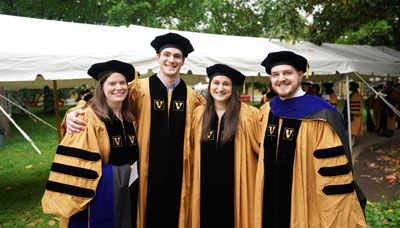
Vanderbilt’s newest biomedical sciences PhD graduates came to Nashville with undergraduate degrees from 80 different colleges and universities in the United States and around the world.
Every student in the highly accomplished group was the first author on at least one scientific paper, about half published two or more first-author papers, and 83% had one or more non-first-author papers, according to Abigail Brown, PhD, director of Outcomes Research in the Office of Biomedical Research Education and Training (BRET).
On average, graduating students published five papers as a result of their graduate work at Vanderbilt. Their research appeared in high-impact journals including Science, Cell, Nature and the Proceedings of the National Academy of Sciences.
Two-thirds of the group gave oral presentations at national or international meetings and 98% gave oral or poster presentations. The students were supported by external fellowships (43%) and/or institutional NIH training grant fellowships (73%).
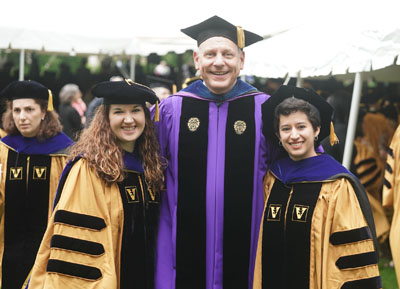
Most of the new PhD graduates — 64% — are continuing their training with postdoctoral fellowships. These include traditional positions in academic research laboratories as well as non-traditional industry, government and clinical fellowships. The rest have accepted or are seeking employment that does not require a prior postdoctoral fellowship.
The BRET Career Development ASPIRE Program has been instrumental in exposing students and postdoctoral fellows to the broad range of career opportunities available to individuals with PhD degrees in the biomedical sciences.
“From the beginning of my time in graduate school I attended as many career connections and other events as I could, and I constantly updated my lists of interests and potential next steps,” said Kristin Peterson, PhD, who participated in the commencement ceremony last week.
Peterson worked with Alyssa Hasty, PhD, Cornelius Vanderbilt Professor of Molecular Physiology and Biophysics, to study how a protein called complement factor 5, known for its role in fighting bacterial infections, influences insulin signaling and metabolic disease.
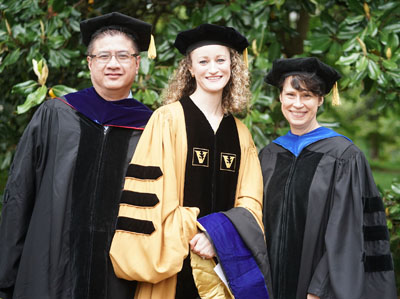
Peterson is now working as an Analyst at Proactive Worldwide, a competitive intelligence consulting firm. During graduate school, she learned about the firm and connected with Vanderbilt PhD alumni who work there through ASPIRE Program events.
Fuseini said she wouldn’t have been aware of the Fogarty Global Fellowship if she hadn’t been open about her desire to pursue global health research. She offered some parting advice to current graduate students, especially those in the early stages of their training: “Be more vocal about your career interests to your mentor and fellow students so you don’t miss out on any potentially career-defining opportunities.”













